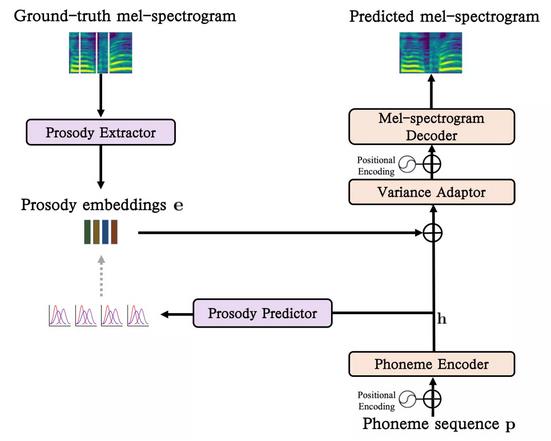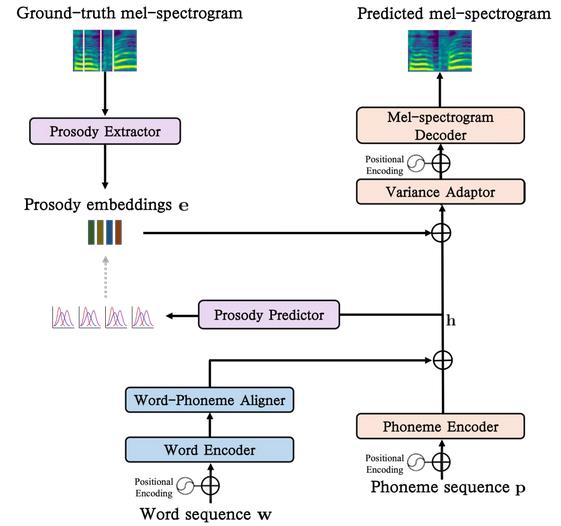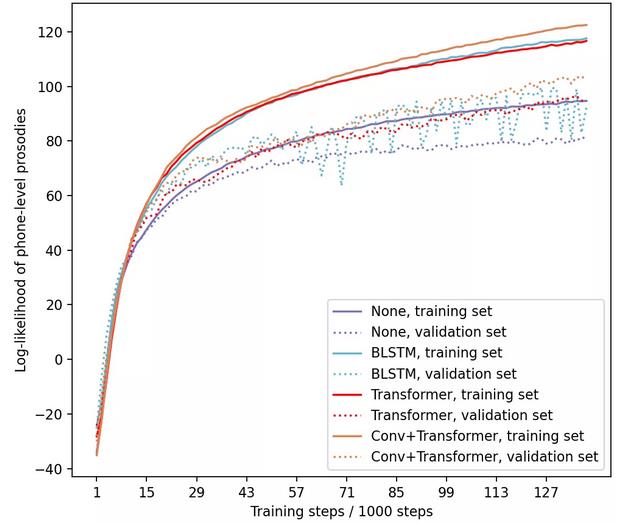State (city) Development and Reform Commission, Health Insurance Bureau:
In order to further standardize the electronic trading behavior of centralized procurement of drugs and high-value medical consumables, strengthen the supervision and management of trading activities, reduce the institutional transaction costs of market participants, and promote the openness, fairness and justice of market competition order, the Rules for Centralized Procurement of Drugs and Medical Consumables on Yunnan Public Resource Trading Platform are hereby printed and distributed to you, please implement them carefully.
Yunnan Provincial Development and Reform Commission Yunnan Provincial Medical Security Bureau
Yunnan province organ affairs management bureau
June 11th, 2021
Electronic trading rules for centralized procurement of drugs and medical consumables on Yunnan public resource trading platform
Chapter I General Principles
the first In order to further standardize the centralized procurement of drugs and medical consumables, improve the level of electronic transactions, and promote the openness, fairness and justice of the market competition order, According to the Electronic Signature Law of People’s Republic of China (PRC), the Guiding Opinions of the General Office of the State Council on Improving the Centralized Procurement of Drugs in Public Hospitals (Guo Ban Fa [2015] No.7), and the Notice of the General Office of the State Council on Printing and Distributing the Pilot Program for Centralized Procurement and Use of Drugs Organized by the State (Guo Ban Fa [2019] No.2), Notice of the General Office of the State Council on Forwarding the Guiding Opinions of the National Development and Reform Commission on Deepening the Integration and Sharing of Public Resource Trading Platforms (Guo Ban Han [2019] No.41), Interim Measures for the Management of Public Resource Trading Platforms (Order No.39 of 14 ministries and commissions including the National Development and Reform Commission), Provisions of the People’s Government of Yunnan Province on Further Standardizing Public Resource Trading and Strengthening Supervision and Management (Yun Zhengfa [2015] No.55) and Yunnan Province
the second These rules shall apply to the electronic trading activities of centralized procurement of drugs and medical consumables managed by the Catalogue of Public Resources Trading in Yunnan Province.
The electronic trading activities of centralized purchasing of drugs and medical consumables as mentioned in these Rules refer to all or part of centralized purchasing transactions, public services and administrative supervision activities completed online in the form of data messages, relying on the electronic service system, electronic supervision system and professional electronic trading system of centralized purchasing of drugs and medical consumables in Yunnan Province (including Yunnan centralized purchasing platform of drugs and its functional modules for data interaction and business process docking).
Article The Provincial Development and Reform Commission is responsible for coordinating and promoting the integration and sharing of public resource trading platforms, and promoting the interconnection of platforms and the full sharing of information. The member units of the joint meeting of centralized drug procurement in the province shall, in accordance with the prescribed division of responsibilities, supervise the electronic trading activities of centralized drug and medical consumables procurement in the province.
Article 4 Provincial Public Resource Trading Center is the operation service organization of the provincial public resource trading platform, responsible for the daily operation and maintenance of the public resource trading platform, providing services such as witness, place, information and expert extraction for centralized procurement of drugs and medical consumables, and maintaining normal trading order. The provincial government procurement and transfer center is responsible for the construction, management, maintenance and operation of the centralized drug procurement platform in Yunnan Province, and specifically organizes the implementation of electronic trading activities for centralized procurement of drugs and medical consumables.
Chapter II Electronic Trading Professional System
Article 5 The provincial centralized drug procurement platform shall provide full-process services for the parties to the trading activities to complete centralized procurement and online trading online, and in accordance with the requirements of technical standards and data specifications of the provincial public resource trading platform, exchange information and data of the trading process to the electronic service system in real time, and at the same time meet the online full-process supervision requirements of the electronic supervision system.
Article 6 Provincial centralized drug procurement platform should adopt reliable technologies such as identity identification, authority control, encryption and virus prevention to prevent unauthorized operation, ensure the safety, stability and reliability of the system, and take effective technical measures and process design to prevent information that should be kept confidential according to law from being leaked to the maximum extent.
Article 7 The provincial centralized drug procurement platform adopts the standard time of the National Time Service Center. The time involved in centralized procurement activities is subject to the time displayed in the system.
Article 8 The provincial government procurement and transfer center should rely on the centralized drug procurement platform in Yunnan Province to build and manage the market subject information database, and collect the basic information materials of the transaction subject once, reuse them later and update them in time through the "one-form application". The main information is communicated to the portal website of the electronic service system of the public resource trading platform "Yunnan Public Resource Trading Information Network" for publicity.
When participating in centralized procurement activities, pharmaceutical and medical consumables manufacturing enterprises, business enterprises and other market entities shall, in accordance with relevant regulations, handle warehousing registration and digital certificates, and make a credit commitment, and be responsible for the authenticity, completeness and accuracy of the information provided.
Article 9 All parties involved in centralized procurement activities shall use digital certificates to carry out centralized procurement activities of drugs and medical consumables, and all operations carried out in the provincial centralized drug procurement platform shall have legal effect and bear legal responsibilities. In online trading activities, medical and health institutions and distribution enterprises can use user names and passwords to log in to the system for operation, and gradually promote the use of digital certificates to carry out trading activities.
Article 10 The provincial public resources trading platform and the provincial centralized drug procurement platform should support the compatibility and mutual recognition of different digital certificates.
Article 11 The following transaction process documents formed in centralized procurement activities shall be electronically signed and filed with digital certificates to ensure that data messages are not tampered with, omitted and traceable:
(a) tender (procurement) announcement;
(2) Bidding (procurement) documents and their clarifications, supplements and amendments;
(three) the declaration documents or information and its clarification and explanation;
(4) Review report;
(five) the evaluation results publicity and online trading notice;
(6) Other documents as prescribed by laws and regulations.
Chapter III Electronic Transaction Procedures
Article 12 Registration of project entry transaction.
(a) the provincial government procurement and transfer center to log in to the electronic trading professional system for the registration of the project entry transaction, fill in the relevant information of the project as required, and provide the relevant documents of the Provincial Medical and Social Security Bureau on the procurement of drugs and high-value medical consumables and other materials required to be provided.
(two) after the provincial public resources trading center accepts the application for registration of the project entry transaction, the provincial government procurement and transfer center reserves the opening, evaluation or negotiation and bargaining place of the declaration documents through the electronic trading professional system; According to the situation of the site, the public resource trading center allocates the site for opening documents, reviewing or negotiating and bargaining online. The longest processing time shall not exceed 1 working day.
Article 13 Compilation and release of bidding (procurement) documents and bidding (procurement) announcements.
(a) the provincial government procurement and transfer center in accordance with the "Yunnan Province drugs and medical consumables dynamic network scheme (Provisional)" provisions, refine the drug classification procurement scheme and prepare the tender (procurement) documents and tender (procurement) announcement, after electronic signature submitted to the provincial centralized drug procurement platform portal.
(2) Bidding (procurement) documents and bidding (procurement) announcements are automatically interactive to the portal of the electronic service system of the provincial public resource trading platform "Yunnan Public Resource Trading Information Network" for public release, and synchronously interactive to the national public resource trading platform.
(three) the provincial public resources trading center to determine the project witness service personnel, witness service personnel in accordance with the relevant provisions of the document opening, review and other activities to witness and serve.
(4) If the provincial government procurement and transfer center needs to make necessary clarification or modification on the issued tender (procurement) documents and tender (procurement) announcements, the clarification and modification contents shall be publicly released on the Yunnan centralized drug procurement platform and the Yunnan Public Resources Trading Information Network. In accordance with the relevant provisions, if the deadline for submission of declarations should be postponed, the venue for bid opening and evaluation should be re-scheduled, and a clarification and amendment announcement should be issued.
Article 14 Preparation and submission of declaration documents.
(a) the applicant (pharmaceutical production enterprises and operating enterprises) obtained the bidding (procurement) documents and their clarifications, supplements and amendments through the provincial centralized drug procurement platform.
If the applicant or other interested parties have doubts about the bidding (procurement) documents, they shall log in to the provincial centralized drug procurement platform to submit the questioning documents within the prescribed questioning period, and the questioning documents shall contain the contents and relevant basis of the questioning. The provincial government procurement and transfer center shall make a reply within the prescribed time limit for answering questions. Query processing involves clarification or modification of bidding (procurement) documents, which shall be implemented in accordance with Article 13 (4) of these Rules.
(two) the applicant shall prepare the declaration documents in accordance with the requirements of the tender (procurement) documents, and before the deadline for declaration, use the digital certificate to electronically sign and encrypt them, and submit them to the provincial centralized drug procurement platform.
The submission time of the declaration documents shall be based on the time displayed on the provincial centralized drug procurement platform when the upload is successful. The deadline for declaration is based on the time displayed on the provincial centralized drug procurement platform. The overdue system will be automatically closed, and the application documents that have not been uploaded will be rejected.
Before the deadline for filing, the applicant may supplement, modify or withdraw the filing documents in accordance with the provisions of the bidding (procurement) documents and the bidding (procurement) announcement, and no unit or individual may decrypt or extract the filing documents. If the transmission of the declaration documents is not completed before the deadline, it shall be deemed as withdrawal of the declaration documents.
The application documents that are not electronically signed and encrypted with digital certificates as required shall be rejected and prompted by the provincial centralized drug procurement platform.
Article 15 Opening of application documents, review and publicity of results.
(a) the electronic declaration documents shall be opened online on the provincial centralized drug procurement platform according to the time determined in the bidding (procurement) documents. If the tender (procurement) documents require on-site confirmation of opening information or negotiation for procurement, the applicant shall attend with a digital certificate at the time and place specified in the tender (procurement) documents.
(2) Within the opening time of the declaration documents specified in the bidding (procurement) documents, the provincial centralized drug procurement platform automatically extracts all the declaration documents encrypted and successfully uploaded according to the regulations, and the declarer decrypts them online on time according to the methods specified in the bidding (procurement) documents. After the decryption is completed, the provincial centralized drug procurement platform automatically announces the name of the applicant, product information, declared price and other contents specified in the bidding (procurement) documents to all the applicants, and generates a declaration information opening record form. The opening record of declaration information shall be made public to the public, except that it shall be kept confidential according to law.
If the declaration documents are not decrypted due to the reasons of the declarant, it shall be deemed that the declaration documents have been withdrawn, and the corresponding responsibilities shall be borne by the declarant. If some of the declaration documents have not been decrypted, the decryption of other declaration documents will continue.
(III) If the declarant has any questions or complaints about the opening and decryption of the declaration documents, he shall put them forward through the provincial centralized drug procurement platform within the time specified in the bidding (procurement) documents, and the provincial government procurement and transfer center and the provincial medical insurance bureau shall make a timely reply and record them in the system.
(IV) After the application documents are opened, the provincial government procurement and transfer center logs on to the Yunnan Comprehensive Bid Evaluation Expert Database, a provincial public resource trading platform, and submits an application for the selection of evaluation experts. After the centralized procurement activities are examined and approved by the administrative supervision department, the evaluation experts are randomly selected from the Yunnan Comprehensive Bid Evaluation Expert Database to form an evaluation committee. If bargaining purchase or face-to-face negotiation is needed, the selection time of the evaluation experts shall not be earlier than 48 hours before the start time of the meeting such as bargaining or negotiation.
In accordance with the relevant provisions, if it is necessary to hire experts other than "Yunnan Comprehensive Bid Evaluation Expert Database", the experts can be directly determined with the consent of the administrative supervision department of centralized procurement activities. The Provincial Health and Wellness Committee absorbed experts into the "Yunnan Comprehensive Bid Evaluation Expert Database" in accordance with the Notice of the Yunnan Provincial Development and Reform Commission on Printing and Distributing the Professional Classification Standards for Bid Evaluation Experts in Yunnan Province.
(five) the evaluation work should be carried out online under the environment of effective monitoring and confidentiality. In addition to the members of the evaluation committee, the identity and quantity of other personnel entering the evaluation room shall be implemented in accordance with the provisions of the provincial public resources trading center.
(six) members of the evaluation committee use personal digital certificates to log in to the provincial centralized drug procurement platform and sign the bid evaluation commitment letter, and conduct independent evaluation according to the evaluation requirements stipulated in the bidding (procurement) documents or bidding (procurement) announcements. If the applicant needs to clarify or explain the declaration documents during the review, the provincial government procurement and transfer center and the applicant shall exchange data messages through the provincial centralized drug procurement platform. If there are other provisions in the bidding (procurement) documents, the provisions of the documents shall prevail.
After the completion of the review, the review committee shall submit the review report through the provincial centralized drug procurement platform, and the review report shall be electronically signed by the members of the review committee.
(seven) the provincial government procurement and transfer center according to the review report issued by the review committee, in Yunnan Province centralized drug procurement platform portal published review results publicity and online trading notice. Relevant information is automatically interactive to the portal website of the electronic service system of the provincial public resource trading platform "Yunnan Public Resource Trading Information Network" for public release, and synchronously interactive to the national public resource trading platform.
The publicity of the evaluation results and the notice of online trading shall include: the name of the applicant, the declared product information, the audit conclusion, the online trading price, the procurement classification and other information that should be disclosed as stipulated by laws and regulations.
(eight) the applicant who has passed the review shall, in accordance with the requirements of the notice of online trading, handle the online trading procedures in the provincial government procurement and transfer center in accordance with the relevant provisions.
Article 16 According to the principle of classified procurement, centralized procurement activities of drugs and medical consumables are carried out by means of quantity procurement, direct procurement, bargaining procurement, negotiation procurement, price online procurement, price linkage procurement, etc., preparation and release of procurement information announcement, preparation, encryption, submission, transmission, receipt confirmation, decryption, opening, review, bargaining, announcement of negotiation results and notification of results.
According to the needs of classified procurement, the provincial government procurement and transfer center can optimize the bidding procurement process, improve work efficiency and ensure the efficient completion of centralized procurement of drugs and medical consumables under the premise of openness, fairness and justice.
Article 17 After the evaluation results are publicized and the online trading notice is issued, the electronic trading system automatically generates the entry trading certificate, which can be downloaded and printed by the tenderee or tendering agency.
The certificate of entry transaction shall specify the main information of centralized procurement of drugs and medical consumables and be marked with anti-counterfeiting, and the electronic trading system shall open the anti-counterfeiting query function of the certificate of entry transaction.
Article 18 After the completion of electronic trading activities, the provincial government procurement and transfer center shall sort out the relevant information of the transaction process and submit it to the relevant departments for filing as required.
Article 19 The centralized drug procurement platform of the province shall establish an information exchange and sharing platform for online trading of drugs and medical consumables with the Provincial Medical Insurance Bureau, and regularly push online trading information data of drugs and medical consumables to the electronic service system of the provincial public resource trading platform every month, including product name, manufacturer name, transaction price, purchase amount of medical institutions and other data. Gradually realize the real-time push of drugs and medical consumables online transaction information data.
Chapter IV Handling of Special Situations
Article 20 The following circumstances lead to the failure of the centralized drug procurement platform in the province to operate normally, which affects the fairness, justice and information security of centralized procurement activities. After being identified by a third-party organization, all parties are exempted from liability:
(1) The website cannot be accessed or used due to the failure of the network, server and database;
(two) the failure of the power system leads to the failure of the electronic trading system;
(3) Network attack, virus invasion or discovery of serious security holes in the platform system lead to failure to provide services normally;
(four) other circumstances that can not guarantee the fairness, justice and information security of electronic trading activities.
Article 21 In the case of the situation mentioned in Article 20, the construction and operation units of the provincial centralized drug procurement platform shall promptly organize relevant parties to find out the reasons, troubleshoot and deal with them according to the following methods:
(a) to ensure that the system can be restored before the opening time of the declaration documents, and the electronic trading activities will continue;
(two) if the application documents can not be opened on time, the project will be suspended, and the suspension period will be determined by the provincial government procurement and transfer center according to the specific circumstances, and a notice of suspension will be issued to the applicant. After the suspension of the project is eliminated, the provincial government procurement and transfer center shall issue a notice to the applicant as soon as possible to resume the electronic transaction procedure.
Chapter V Supervision and Administration
Article 22 The member units of the joint meeting of the provincial centralized drug procurement shall implement online real-time supervision and management of the whole process of electronic bidding activities through the electronic supervision system. The electronic supervision system shall meet the following requirements:
(1) Giving instructions online in time, realizing comprehensive recording and real-time interaction of the information of all parties involved in centralized procurement activities and the transaction process, and ensuring that the source and destination of the transaction records can be traced, the supervision can be traced, and the responsibilities can be investigated.
(2) It has the functions of online implementation of electronic transaction process management, real-time monitoring of declaration document opening and review, negotiation and bargaining, handling of abnormal transaction situations, playback of transaction process, handling of complaints and reports, feedback and notification of processing results, and recording, collecting, pushing, identifying, processing, feedback and publicity of bad behaviors and credit information of market entities.
The electronic supervision system of the provincial public resources trading platform should be built with the electronic supervision platform of the industry established by the provincial medical security department to realize real-time interactive sharing of supervision information and data.
Article 23 To participate in centralized procurement activities of production enterprises (operating enterprises) or other interested parties, the centralized procurement transaction process or evaluation results have doubts or need to appeal, it should be in the tender (procurement) documents within the time limit specified in the login province centralized drug procurement platform, to the provincial government procurement and transfer center to question or appeal. The provincial government procurement and transfer center shall reply within the specified time. If the production enterprise (operating enterprise) or other interested parties are not satisfied with the reply, they may make a complaint to the Provincial Medical Security Bureau through the electronic supervision system in accordance with the relevant provisions.
Article 24 The provincial medical insurance bureau and other administrative supervision departments shall improve the management and application mechanism of credit information for centralized procurement of drugs and medical consumables. The provincial government procurement and transfer center shall, in accordance with the relevant provisions, specify the query time, query channels and methods of credit information, as well as the application and evaluation criteria of the applicant’s credit information in the bidding (procurement) documents.
Article 25 If the applicant and the evaluation experts violate these rules and the business processes and service standards formulated and publicized by the public resource trading center according to these rules and disturb the normal trading order, the public resource trading center shall remind them and record them; In case of any violation of laws and regulations in electronic bidding activities, relevant evidence shall be kept and reported to the relevant administrative supervision departments in a timely manner.
Article 26 Administrative supervision departments and their staff shall not interfere in electronic trading activities except performing their duties according to law, and shall abide by the relevant provisions on information confidentiality.
Article 27 Provincial centralized drug procurement platform and provincial public resource trading platform operation service institutions and technical service guarantee units shall not restrict or exclude potential applicants by any means, shall not disclose information that should be kept confidential according to law, and shall not provide convenience for fraud and collusion in bidding. No unit or individual may forge, tamper with or damage the information of electronic trading activities.
Chapter VI Supplementary Provisions
Article 28 The Yunnan Provincial Development and Reform Commission, the Provincial Medical Insurance Bureau and the Provincial Organs Affairs Bureau are responsible for the interpretation of these rules.
Article 29 These Rules shall come into force as of the date of issuance. The Detailed Rules for the Implementation of Centralized Procurement of Drugs and High-value Medical Consumables on Yunnan Public Resource Trading Platform (Trial) (Yungong Guanfa [2017] No.122) shall be abolished at the same time.














































